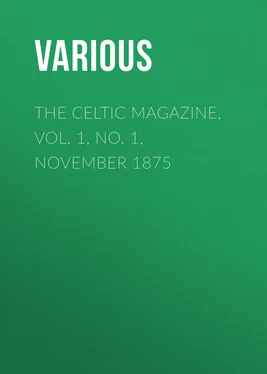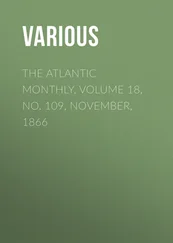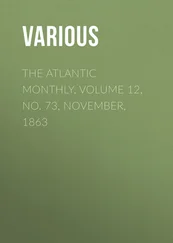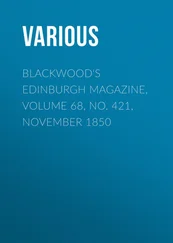Various - The Celtic Magazine, Vol. 1, No. 1, November 1875
Здесь есть возможность читать онлайн «Various - The Celtic Magazine, Vol. 1, No. 1, November 1875» — ознакомительный отрывок электронной книги совершенно бесплатно, а после прочтения отрывка купить полную версию. В некоторых случаях можно слушать аудио, скачать через торрент в формате fb2 и присутствует краткое содержание. Жанр: foreign_prose, periodic, История, foreign_edu, foreign_antique, на английском языке. Описание произведения, (предисловие) а так же отзывы посетителей доступны на портале библиотеки ЛибКат.
- Название:The Celtic Magazine, Vol. 1, No. 1, November 1875
- Автор:
- Жанр:
- Год:неизвестен
- ISBN:нет данных
- Рейтинг книги:3 / 5. Голосов: 1
-
Избранное:Добавить в избранное
- Отзывы:
-
Ваша оценка:
- 60
- 1
- 2
- 3
- 4
- 5
The Celtic Magazine, Vol. 1, No. 1, November 1875: краткое содержание, описание и аннотация
Предлагаем к чтению аннотацию, описание, краткое содержание или предисловие (зависит от того, что написал сам автор книги «The Celtic Magazine, Vol. 1, No. 1, November 1875»). Если вы не нашли необходимую информацию о книге — напишите в комментариях, мы постараемся отыскать её.
The Celtic Magazine, Vol. 1, No. 1, November 1875 — читать онлайн ознакомительный отрывок
Ниже представлен текст книги, разбитый по страницам. Система сохранения места последней прочитанной страницы, позволяет с удобством читать онлайн бесплатно книгу «The Celtic Magazine, Vol. 1, No. 1, November 1875», без необходимости каждый раз заново искать на чём Вы остановились. Поставьте закладку, и сможете в любой момент перейти на страницу, на которой закончили чтение.
Интервал:
Закладка:
Macaulay, it will be noticed, admits that Ossian's Poems were admired by men of taste and of genius. But it never seems to have occurred to him that this fact should have made him pause and reconsider his opinions ere he expressed them in such a broad and trenchant style. Hugh Miller speaks of a critic of the day from whose verdicts when he found himself to differ, he immediately began to re-examine the grounds of his own. This is a very high compliment to a single writer; but Macaulay on the Ossian question has a multitude of the first intellects of modern times against him. The author of the History of England is a great name, but not so great as Napoleon the First, Goethe, and Sir Walter Scott, nor is he greater than Professor Wilson and William Hazlitt; and yet all these great spirits were more or less devoted admirers of the blind Bard of Morven. Napoleon carried Ossian in his travelling carriage; he had it with him at Lodi and Marengo, and the style of his bulletins—full of faults, but full too of martial and poetic fire—is coloured more by Ossian than by Corneille or Voltaire. Goethe makes Homer and Ossian the two companions of Werter's solitude, and represents him as saying, "You should see how foolish I look in company when her name is mentioned, particularly when I am asked plainly how I like her. How I like her! I detest the phrase. What sort of creature must he be who merely liked Charlotte; whose whole heart and senses were not entirely absorbed by her. Like her! Some one lately asked me how I liked Ossian." This it may be said is the language of a young lover, but all men are at one time young lovers, and it is high praise and no more than the truth to say that all young lovers love, or did love, Ossian's Poems. This is true fame. Sir Walter Scott says that Macpherson's rare powers were an honour to his country; and in his Legend of Montrose and Highland Widow, his own style is deeply dyed by the Ossianic element, and sounds here like the proud soft voice of the full-bloomed mountain heather in the breeze, and there like that of the evergreen pine raving in the tempest. Professor Wilson, in his "Cottages" and his "Glance at Selby's Ornithology," is still more decidedly Celtic in his mode of writing; and, in his paper in Blackwood for November 1839, "Have you read Ossian?" he has bestowed some generous, though measured praise, on his writings. He says, for instance—"Macpherson had a feeling of the beautiful, and this has infused the finest poetry into many of his descriptions of the wilderness. He also was born and bred among the mountains, and though he had neither the poetical nor the philosophical genius of Wordsworth, and was inferior far in the perceptive, the reflective, and the imaginative faculties, still he could see , and feel , and paint too, in water colours and on air canvass, and is one of the Masters." Hear next Wilson's great rival in criticism, Hazlitt. They were, on many points bitter enemies, on two they were always at one—Wordsworth and Ossian! "Ossian is a feeling and a name that can never be destroyed in the minds of his readers. As Homer is the first vigour and lustihood, Ossian is the decay and old age of poetry. He lives only in the recollection and regret of the past. There is one impression which he conveys more entirely than all other poets—namely, the sense of privation—the loss of all things, of friends, of good name, of country—he is even without God in the world. He converses only with the spirits of the departed, with the motionless and silent clouds. The cold moonlight sheds its faint lustre on his head, the fox peeps out of the ruined tower, the thistle waves its beard to the wandering gale, and the strings of his harp seem as the hand of age, as the tale of other times passes over them, to sigh and rustle like the dry reeds in the winter's wind! If it were indeed possible to shew that this writer was nothing, it would only be another instance of mutability, another blank made, another void left in the heart, another confirmation of that feeling which makes him so often complain—'Roll on, ye dark brown year, ye bring no joy in your wing to Ossian!'" "The poet Gray, too," says Wilson, "frequently in his Letters expresses his wonder and delight in the beautiful and glorious inspirations of the Son of the Mist." Even Malcolm Laing—Macpherson's most inveterate foe—who edited Ossian for the sole purpose of revenge, exposure, and posthumous dissection, is compelled to say that "Macpherson's genius is equal to that of any poet of his day, except perhaps Gray."
Читать дальшеИнтервал:
Закладка:
Похожие книги на «The Celtic Magazine, Vol. 1, No. 1, November 1875»
Представляем Вашему вниманию похожие книги на «The Celtic Magazine, Vol. 1, No. 1, November 1875» списком для выбора. Мы отобрали схожую по названию и смыслу литературу в надежде предоставить читателям больше вариантов отыскать новые, интересные, ещё непрочитанные произведения.
Обсуждение, отзывы о книге «The Celtic Magazine, Vol. 1, No. 1, November 1875» и просто собственные мнения читателей. Оставьте ваши комментарии, напишите, что Вы думаете о произведении, его смысле или главных героях. Укажите что конкретно понравилось, а что нет, и почему Вы так считаете.












